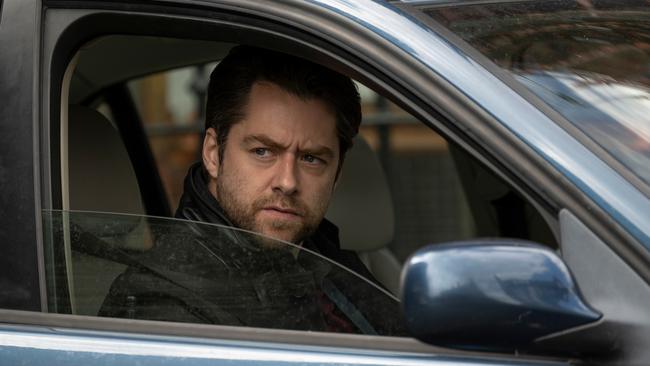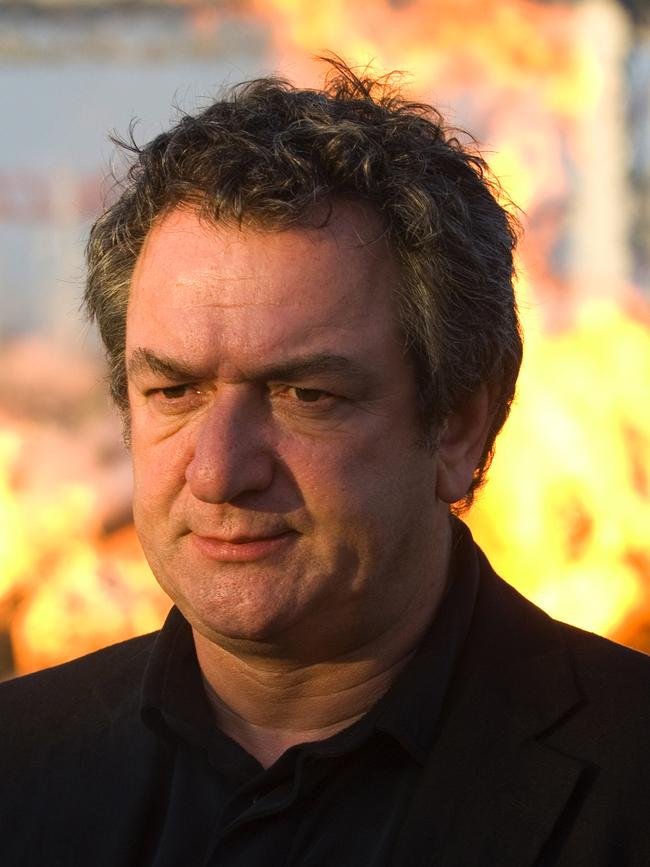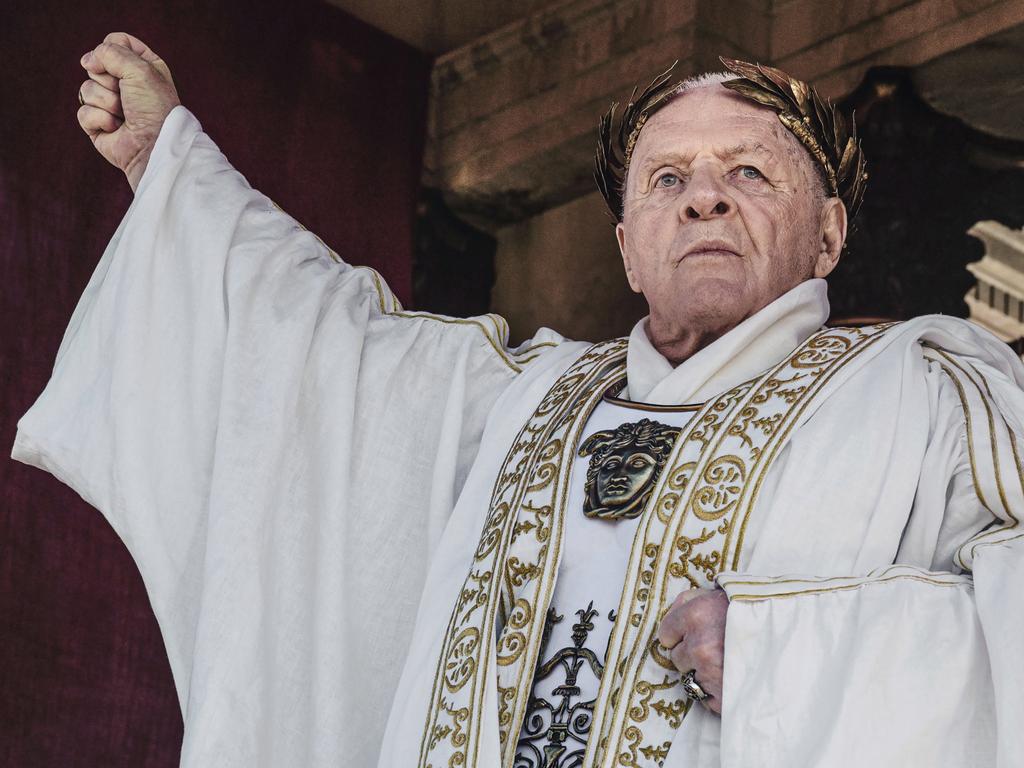Rebus has been reinvented, 25 years after his first TV outing
Ian Rankin’s brooding Edinburgh cop returns to our screens in an intriguing adaptation starring Outlander’s Richard Rankin.

‘There’s a Scottish word, thrawn, which means you make life as difficult as possible for yourself,” says screenwriter Gregory Burke, responsible for Rebus, the new BBC series based on Ian Rankin’s long-running novels. “Things could probably be a lot easier for you, but you have that kind of personality which is drawn to not taking the easiest road.”
He’s talking about Rankin’s Edinburgh copper Detective Inspector John Rebus of the Lothian and Borders Police. And for those unfamiliar with the bestselling Rankin’s books, they feature one of the most beguiling, if curmudgeonly, characters in the genre’s long tradition. “People have that kind of contrary nature where they can’t help but make their life more difficult than it should be,” Burke says. “That was one of the things I liked in this character.”
And so have millions of readers and television viewers as they’ve followed Rebus as he takes to the streets in search of the crooks committing the murders, drug dealing, money laundering, refugee smuggling and other crimes in the weary cop’s beloved city.
“Rebus is dark, brooding and slightly dangerous and edgy,” Rankin says. “He’s someone people would like to meet for a short time. The books allow them to meet him for a short time, but I don’t think you’d want to hang out for too long.”
Well, we’ve been hanging around with him for ages now, since 1987. He was around 40 when we discovered him in Knots and Crosses, and in recent times he has retired, is in ill health and is getting on for 70. Understandably, he’s a bit tired.
He has encountered Nazi war criminals living in Scottish retirement, refugee-smuggling rackets from Bosnia, a copycat killer nicknamed Bible, and prostitutes trafficked into Scotland from eastern Europe.
That is when he’s not tucked up in the Oxford Bar in Young Street, downing a late liquid lunch, a place, as the detective says, “There should be no compelling reason to leave.”
Place has been as central to reading Rankin’s novels as the concept of the least likely culprit, the mysteries of his puzzles or the journey of his defective hero on the road to redemption. As Rankin says, “Each is a finely rendered snapshot of a specific time and place” in Edinburgh’s history.
The new series arrives almost 25 years since John Hannah, followed by the lugubrious Ken Stott, first brought the Edinburgh cop to the screen, and Burke has reimagined the character as a younger detective sergeant adrift in the city.

He’s played by Richard Rankin (of Outlander fame, no relation to the novelist) with a hard, remorseless edge and a sardonic bitter smile. And a touch of bafflement at where he finds himself in life; everything he does seems to be some sort of test as if he’s at some kind of crossroads and has no idea of the right direction to take. (His name is a clue: a rebus is the Latin for a picture puzzle, a riddle that must be unlocked.)
“Rebus is probably a little bit of a dinosaur in his world, but the police still need the guy who criminals can be scared of,” says Burke. “It’s not for his own gain. It’s not about corruption. It’s about his very moralistic view of corruption. He actually has a very Presbyterian world view.”
Ian Rankin has given his blessing to the adaptation, which draws on the spirit of the many books, the show’s titles telling us it is “based on” the novels.
Burke is also an executive producer, running the project with the full co-operation of Rankin, and director is the experienced Niall MacCormick, best known for Kenneth Branagh’s Wallander and The Durrells.
The series was made by Eleventh Hour Films for Nordic streamer Viaplay, which later withdrew from the production, passing it on to the BBC. Director of photography is Giulio Biccari, best known for HBO’s The No.1 Ladies’ Detective Agency and the BBC’s Emmy-nominated Luther. What the series provides is as much a study of character as a routine cop drama in which, as Burke says, “the detective who goes against the grain is a trope of TV detectives”.
His Rebus is what he calls “a divided soul”,a schism he says that runs through the literature of Edinburgh, providing a narrative in the show with that continuum of literature almost flowing through it. “As a policeman, it is his job to uphold the law,” Burke says. “But he’s also a person who is willing to go beyond the law and to do things where the end justifies the means.”
At one point in the series Rebus tells his colleagues that to keep criminals in check they must bend things a little, “There’s rules and there’s laws, right? The law’s whatever society says it is at any given point. The rules are the rules – blood is thicker than water, don’t grass on your friends, an eye for an eye. Criminals follow the rules. Sometimes they need a reminder that the police know the rules, too.”
This dichotomy is established right at the start in the new series. Rebus is caught in extreme close-up, dragging on a cigarette, the city a blur of lights behind. He turns and walks towards confusion, police and ambulances attending a car crash.
“Two police officers injured, one critical, one walking wounded,” an emergency radio shrieks.
Rebus sees an ambulance and asks a cop, “Is Cafferty in there?” Telling the policeman to get lost, he climbs in and confronts the man.
“I didn’t know you were in the car,” says Cafferty, played with wonderful malevolence by Stuart Bowman. “You rammed us off the f..king road,” Rebus replies.
The bloke injured in the ramming is George Swirling, Rebus’s mentor in the force, head of the serious crime squad. Cafferty snarls: “No one robs me and walks away.” And Rebus kicks, punches and then tries to suffocate him before the ambulance door is dragged open.
Then we are in the titles, Jamie N Commons sings Glory, setting the brooding, introspective style of the show: “Truth be told, I’m not the man I once was,” Commons sings. “Truth be told, I feel broke down inside.” (It’s hard not to be reminded of Maggie Bell’s wonderful No Mean City, the theme song for the other great Scottish crime series, Taggart.)
We’re a year later. Rebus, a weekend dad, not a good one, takes his daughter to visit his ex-army brother Michael, where things turn ugly, and Rebus punches him in front of her. Michael is played with a steely presence by Brian Ferguson, his military background subtly present in the way he is constantly scanning his whereabouts, a nervous sense of anticipation emanating from his tight features.
A veteran of many overseas deployments, he’s “the man with the stories”, according to Rebus. While a minor character in an early novel, a stage hypnotist and drug dealer, he’s central here as the story develops, resentful, struggling financially and working as a courier delivering parcels. And he’s enraged at the drug dealing going on in his street. He also happens to have his service weapon secreted in an old, hidden case.
“During our various conversations early on, Greg Burke zoned in on that almost blood brothers thing or that Jekyll and Hyde thing where you can have two brothers who are close to each other, who love each other, but potentially can destroy each other,” novelist Rankin says. “I just thought that was a really interesting route that Greg chose for the series to follow. He takes us into the Jekyll and Hyde nature of Edinburgh.”
We’re soon at a crime scene then where Jimmy McJagger – he hates jokes about Mick - has been stabbed in broad daylight. On a bus back to jail, he’s attacked by two men dressed as joggers, who it turns out have connections to Cafferty.
Gill Templer, such a character in the novels, played by flinty Caroline Lee-Johnson, is Rebus’s superior again here, a rather authoritarian boss. “Find out what happened here and nip it in the bud,” she tells him at the stabbing site.
She introduces him to his new sidekick, Siobhan Clarke, an intent, thoughtful Lucie Shorthouse, also a stalwart in the Rebus literary universe, his apprentice but also something of a daughter figure. Here she’s a new arrival, bearing a fancy anthropology degree and fast-tracked because of – despised by the old-timers such as Rebus – diversity programs.
This is a fine, intriguing adaptation, directed with a kind of visceral close-up intensity by MacCormick, and watching Richard Rankin’s surly Rebus outweighs any literary deficiencies in the contemporary storyline.
Stott was terrific; few actors do the inner turmoil of difficult, distant men better. But he became just a bit clownish towards the end. Rankin is more vigorous, harder, more the ex-soldier nursing grievances.
But, like Stott, he has that kind of empathetic Scottish melancholy as Rebus that makes him almost disappear into the fog as he turns in on himself, wandering away from some confrontation, becoming part of the misty landscape.
Rebus streaming on SBS On Demand.





To join the conversation, please log in. Don't have an account? Register
Join the conversation, you are commenting as Logout